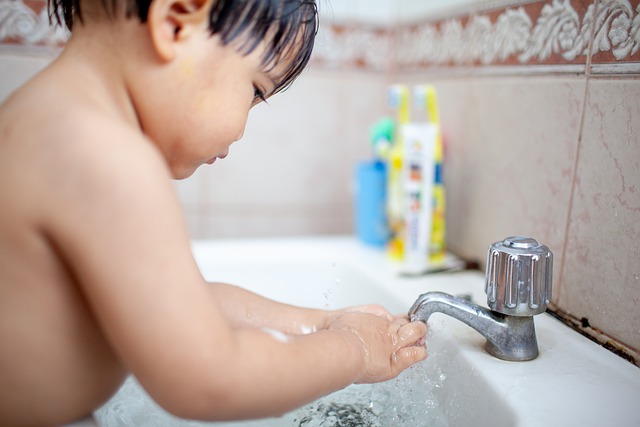
We all like lazing about on weekends, and some of us even skip showers on one of the days. Bathing, which is one method of maintaining excellent hygiene, makes us feel good and helps us stay healthy and happy. We must educate our children on the value of excellent hygiene and the many ways in which we may live a healthy lifestyle. This will become much more critical for them as they reach puberty. Therefore, review these personal hygiene guidelines for children and ensure that they adhere to each one.
1. Brush your teeth at least twice a day.
Children seem to believe that cleaning their teeth is a monumental job. How often has your kid approached you, claiming that they had cleaned their teeth but hadn’t? It’s usually a good idea to begin early with a healthy oral hygiene regimen. Today, a little push will go a long way. If your kid has already acquired a dentinal problem, you should seek medical care from reputable professionals like the orthodontist in New York and arrange checkup visits.
Brushing your teeth twice a day is critical since tooth decay is a prevalent problem among children. Additionally, visit the dentist regularly for routine checks and request an antibacterial mouthwash for your kid.
2. Take a bath daily
While you may have to pull some children to the bathroom for a shower, others may refuse to leave! Never quit up, even if they are difficult. If you miss bath time on one of the days, it will become a habit. Once they reach the age of around five, children can virtually bathe themselves with little supervision. You should include Showers in the nighttime ritual. In this manner, they will remain clean, even more so when they reach adolescence and get all smelly.
Use an antibacterial soap or body wash to remove germs trapped in your perspiration quickly. Additionally, a moisturizer and a good natural deodorant will aid in the maintenance of a pleasant body odor.
3. Hand-washing
Washing hands is perhaps the most critical of the five excellent hygiene recommendations. All day, children are constantly touching toys, reading, and munching on chocolate. We need to educate children to wash their hands before and after eating, using the bathroom, putting out the trash, touching an animal, returning home from school, or being in the presence of a sick friend or hospital.
Maintain a soap dispenser in each washbasin and a couple of hand sanitizers around the home. Choose scents that the children enjoyed to encourage them to wash their hands.
4. Keep your nails trimmed.
While you may clip their nails while they are younger, they should be able to do it alone by the time they reach the age of 7. Nail trimming is critical since it serves as a breeding ground for bacteria that cause various illnesses. Therefore, make it a point to have your children cut their nails weekly. You may ask them to do it after their shower since nails become somewhat softer and easier to trim after a shower.
Nail hygiene is a straightforward yet critical self-care practice. Dermatologists suggest that an adult trim children’s nails until they reach approximately 9 or 10 years. Children around that age can cut their nails if they feel confident doing so.
5. Maintain a sanitary environment
You may follow all of the recommended child hygiene practices, but an untidy desk or bedroom will result in excess bacteria and germs. As a result, educate your children to keep their surroundings clean, beginning with their study table and continuing with their bed and restroom. Assure that they place dirty clothing in the laundry basket and always wear clean clothes and towels. We should instill an appreciation for personal cleanliness in our children and educate them on living a sanitary and healthy lifestyle.
Personal cleanliness is a fundamental need for both children and adults. The bacteria and viruses we come into touch regularly will flourish on our bodies unless we wash them away. Practicing proper hygiene will essentially assist us in preventing diseases. Additionally, following these hygiene recommendations will guarantee that you do not have an offensive body odor or poor breath, which will improve your self-confidence and self-awareness. It is, therefore, crucial to train up your child to be clean to avoid unnecessary illnesses.

